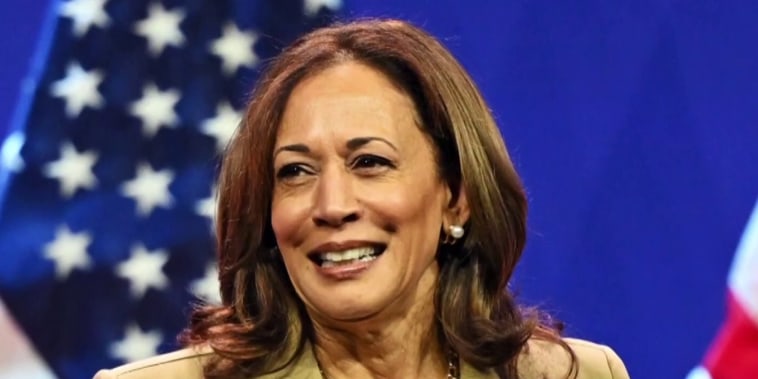Politics
Biden Withdraws from Re-Election Bid, Endorses Kamala Harris

In a surprising turn of events, President Joe Biden has officially announced his withdrawal from the race for re-election, marking a pivotal shift in the 2024 presidential election landscape. Biden declared that he will step aside and has offered his full support to Vice President Kamala Harris, whom he believes should lead the Democratic Party into the upcoming elections.
This decision comes amid growing concerns about Biden’s age and effectiveness, particularly following a challenging debate performance that raised alarms among party leaders. Many within the Democratic Party had begun to voice their anxieties about Biden’s viability as a candidate against former President Donald Trump, indicating that the political climate had intensified the pressure on Biden to reconsider his candidacy.
Biden’s announcement has led to a mixture of reactions from various political figures and communities. Some supporters outside the White House hailed the decision as a patriotic act, emphasizing that Biden is prioritizing the country’s interests over personal ambition. They described his choice as a noble sacrifice in the name of party unity.
Despite Biden’s endorsement of Harris, uncertainty looms over her candidacy. While she has received significant backing, including endorsements from influential figures such as Bill and Hillary Clinton, the silence from former President Barack Obama raises eyebrows about the unity of the Democratic Party. Obama praised Biden’s decision while hinting he supports an open contest for the nomination, thus creating questions about how Harris will consolidate support among other potential candidates.
Potential contenders for the Democratic nomination include prominent governors and former candidates. Figures such as Gavin Newsom from California, Gretchen Whitmer from Michigan, JB Pritzker from Illinois, and Josh Shapiro of Pennsylvania are being closely watched. Additionally, former candidates like Pete Buttigieg, and senators Cory Booker and Amy Klobuchar are considered significant players in this reshaped political landscape. Speculation also surrounds Michelle Obama, should she choose to enter the fray, adding to the already complex dynamics of the race.
Political commentators are examining the implications of Biden’s withdrawal on the Democratic National Convention scheduled for August. The main issue now lies in whether current high-profile Democrats will rally around Harris or contest her candidacy. As of now, while some individuals have publicly acknowledged Biden’s departure, none have offered explicit endorsements for Harris.
The Republican response has been swift and pointed. Donald Trump, the presumptive Republican nominee, utilized his social media platform to criticize both Biden’s withdrawal and Harris’s capacity to lead. Trump’s statements encapsulated the Republican stance, mocking Biden’s mental competence and cautioning voters about the implications of a Harris presidency.
House Speaker Mike Johnson and Republican conference chairwoman Elise Stefanik have emphasized calls for Biden to resign from the presidency entirely, arguing that if he is unfit to run, he should not remain in office. This rhetoric has initiated deeper discussions among Republicans regarding the dynamics of the upcoming election, particularly regarding their chances against a Harris-led campaign.
In her initial reaction to Biden’s announcement, Kamala Harris expressed gratitude towards Biden, reflecting on his leadership qualities and reiterating her commitment to earning the party’s nomination. Harris emphasized her dedication to uniting the party while preparing to confront Donald Trump in the general election.
Meanwhile, analysts are keenly observing the reactions of various Democrat officials as they gauge whether an internal party battle will arise or if a consensus emerges around Harris as the nominee. The potential for a competitive primary could shift the party dynamics further as different factions may jockey for influence.
Biden’s step back from the election represents not only a personal decision but a transformative moment for the Democratic Party as it grapples with the realities of the electoral landscape less than four months before Election Day. His previous standing as the presumptive nominee has now changed, with his delegates becoming available to support other candidates.
The urgency and importance of this situation continue to resonate deeply within the political community, as party unity will be critical going forward. While Biden’s act of relinquishing his nomination may ultimately lead to healing within the party, it has also opened the door to a fiercely competitive electoral race—a race that will require extensive strategy and collaboration among Democrats to challenge Trump effectively.
As the days progress and campaigns evolve, observers will undoubtedly analyze the intricate web of endorsements, potential candidates, and party alignments as the Democratic Party and its members navigate this unforeseen transition.












